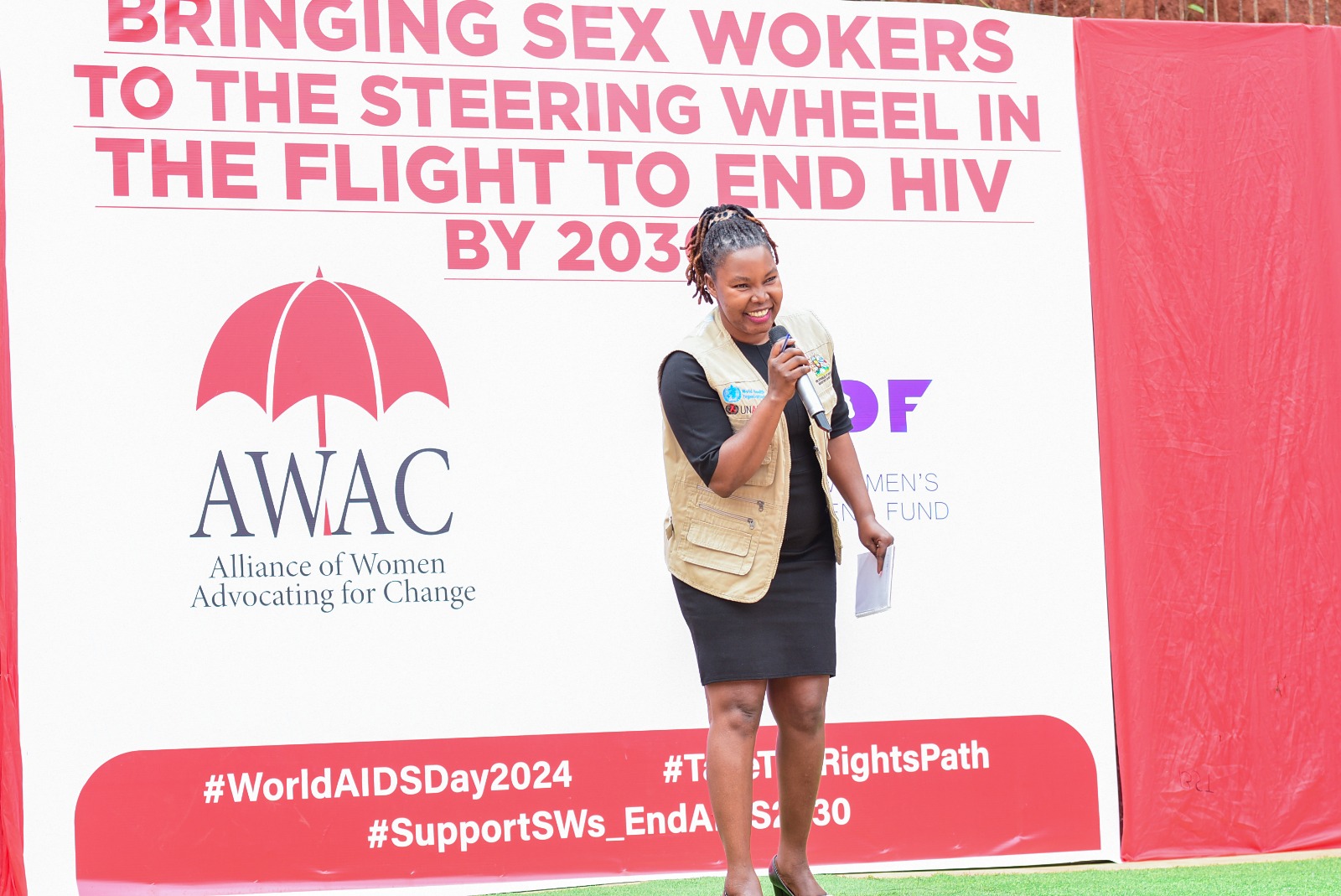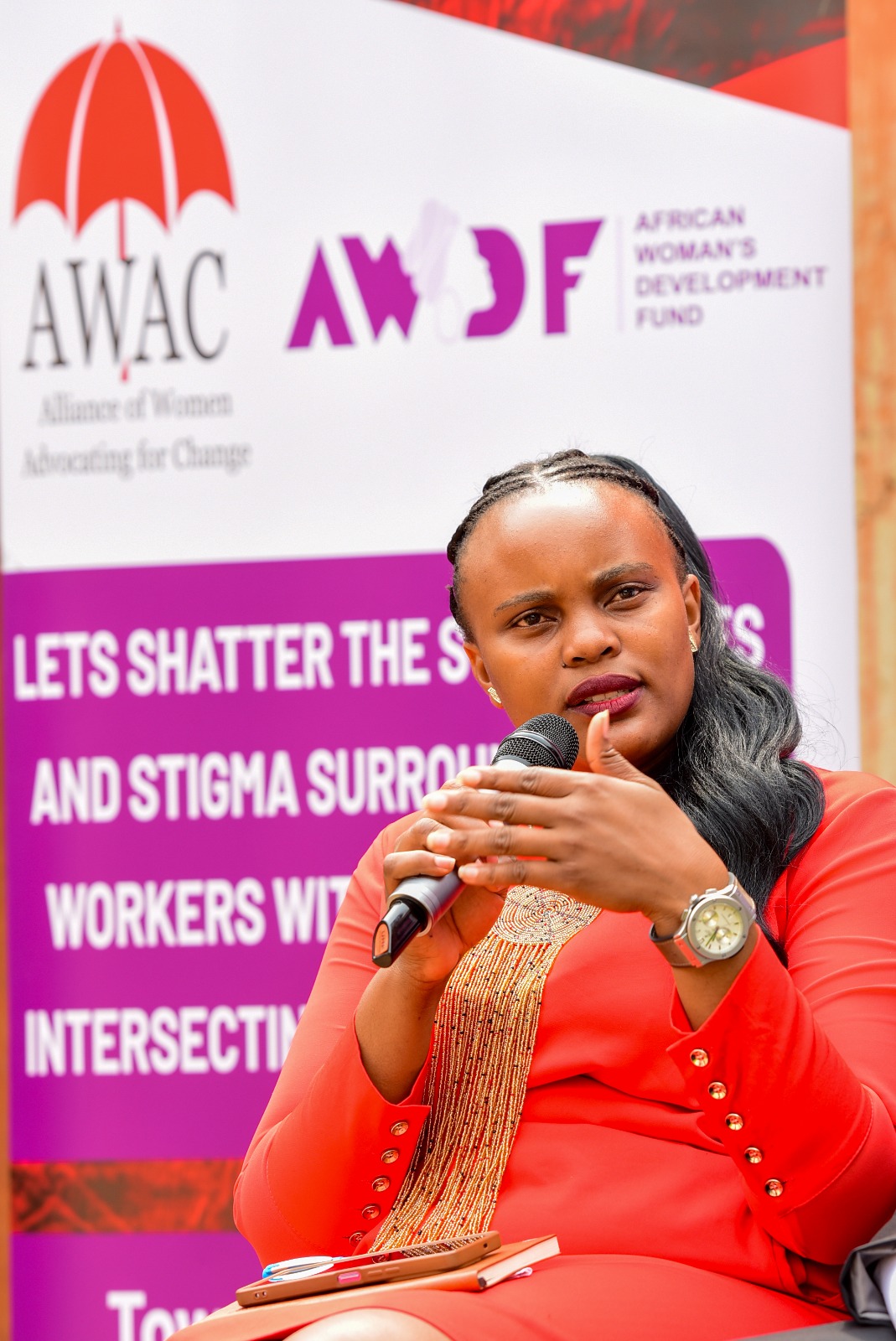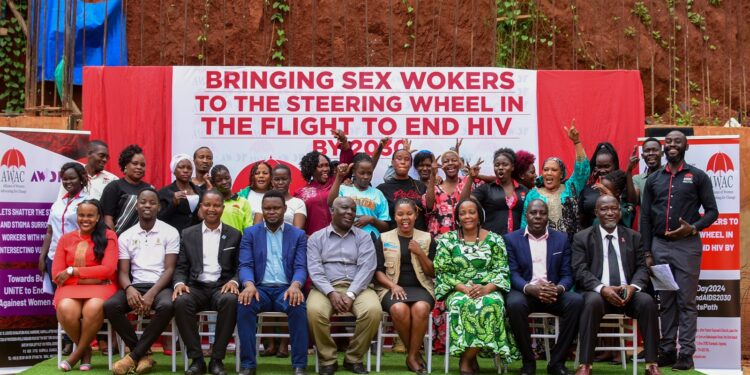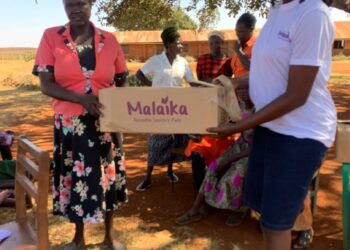During the post-commemoration of World AIDS Day 2024, Sarah Nakku Kibuuka, UNAIDS Community Mobilisation & Networking Advisor, highlighted the cause of alarming trends in HIV/AIDS prevalence among sex workers. Despite global efforts to reduce infections, structural barriers, funding gaps, and persistent stigma continue to exacerbate vulnerabilities within this group.
Speaking at the event organised by the Alliance of Women Advocating for Change (AWAC) on Thursday at their new offices under the theme Bringing Sex Workers to the Steering Wheel in the Fight to End HIV by 2030, Nakku, underscored the urgent need for community-led initiatives to address the rising HIV prevalence.
“Sex workers carry the umbrella of vulnerability when compared to other at-risk populations like fisherfolk and drug users,” she stated. “The epidemic’s concentration is highest among sex workers, yet we continue to see limited direct engagement of these communities in spearheading their own solutions.”
Nakku pointed to significant shortcomings in achieving UNAIDS’ “30-60-80” targets, a framework aimed at scaling up HIV prevention and treatment. According to the advisor, only 40 per cent of the 80 per cent prevention services goal intended to be peer-led is currently being met. Similarly, less than half of the 30 per cent target for services to be delivered by community members has been achieved.

“If I’m a sex worker, the services should be delivered by sex workers who understand their community best,” she explained. “Yet many organizations claim to work with sex workers but are not led by them, creating a gap that undermines trust and effectiveness.”
She insisted on empowering sex workers to lead the grassroots organisation to the hotspots to meet these sex workers as one of the remedies that can fight the increasing HIV prevalence among sex workers.
Kibuuka criticized the indirect funding mechanisms employed by some development partners. “We question why funds meant for community impact must pass through multiple intermediaries before reaching the affected populations. Direct funding to community-led organizations is essential if we are to meet the 60% financing target.”
She commended organizations like the African Women Development Fund for their direct support but called on major global donors like the Global Fund to re-evaluate their approach. “The change we desire will only happen when resources reach the grassroots,” she emphasized.
Nakku also highlighted stigma and discrimination as significant barriers to progress. A recent survey by the School of Public Health revealed that 81% of sex workers in sampled districts feel stigmatized. Globally, stigma among sex workers stands at 58%.
“Stigma remains a critical issue,” she noted. “We cannot achieve our goals if sex workers, drug users, and other marginalized groups continue to face laws and policies that criminalize their existence. Out of 193 UN member states, 88% still criminalize sex work, and 72% have punitive disclosure laws for HIV.”
Nakku, also drew attention to the rising cases of gender-based violence in Uganda, with over 17,000 incidents reported last year. “Gender inequality is a root cause of many challenges we face,” she said. “Unless we address these structural barriers, our efforts to combat HIV/AIDS will fall short.”

She called for a collective effort to eliminate stigma, discrimination, and gender inequality. “We need to save lives and end the structural issues that fuel HIV/AIDS. It’s not just about the sex worker community but all of us working together to create a stigma-free and inclusive society,” she said.
UNAIDS pledged to continue its collaboration with sex worker-led organizations to combat AIDS and related challenges, aiming to achieve a new, HIV-free generation.
In the same line, barrister Kamagara Editah the legal lead at AWAC also noted that Uganda’s aim to end HIV and AIDS in 2030 can only be achieved if the policymakers address the issue of decriminalization of sex work.
“Under Uganda’s Penal Code Act Cap 128, Section 127 defines prostitution as an offence, and Section 128 criminalizes prostitution with a sentence of up to seven years in prison. Additional provisions, like Sections 125 and 126, criminalize living on earnings from prostitution and owning brothels. This criminal status instils fear of arrest, harassment, and violence from law enforcement, discouraging FSWs from seeking essential healthcare services, such as HIV Testing Services, treatment, and preventive measures like Pre-exposure Prophylaxis (PrEP),” she said.
Furthermore, counsel Kamara revealed that the criminal aspect has created incidents of external stigma and self-stigma increase starting from persons like health providers who provide treatment with a lot of judgement to FSWs leading for most of them to shun away from care hence seeing the increased number of cases of HIV prevalence among sex workers.
“It’s important to note that the UN under its sustainable development goal SDG 3’s looking at ending HIV / AIDs by 2030 but this cannot be achieved with the HIV and AIDs Prevention and Control Act, sections 43 and sec 41 which speak to attempt and intentional HIV transmission. Many malicious persons use these sections to undermine the rights of persons living with HIV. The act further also includes issues of disclosure which call for persons living with HIV to disclose their status hence causing intimidation and fear among people living with HIV,” she said. Adding that decriminalization is the way forward and nullifying laws that hinder access to HIV treatment and care.
Ms Macklean Kyomya the Executive Director of AWAC also noted that Sex workers continue to face intersecting forms of stigma, discrimination, and punitive laws that exacerbate inequalities. “Criminalization not only hampers access to essential health services but also heightens risks of violence and harassment for example assaults, economic exploitations, arrests and extortion, raiding of hot spots among others, particularly for Female Sex Workers. Evidence shows that decriminalizing sex work could reduce HIV infections among sex workers and clients by up to 46% over a decade.”
She added; “As we commemorate this day, we urge policymakers, stakeholders, and the community to: Prioritize Inclusion: Bring sex workers into decision-making spaces to lead HIV intervention strategies. Promote Decriminalization: Advocate for legal reforms that protect sex workers’ health and rights. Reduce Stigma: Foster environments where sex workers can access healthcare without fear or discrimination.”
Despite the progress in implementing the new initiatives to curb the spread of HIV, the recent findings from the Crane Survey, conducted by Makerere University School of Public Health, the Ministry of Health, and the U.S. CDC, revealed a disproportionately high HIV prevalence among female sex workers to 55% in some areas compared to the national average of 5.8%.
These alarming statistics underscore the vulnerabilities faced by sex workers from the findings 32% are aged between 15-24 years, 70% have experienced homelessness, 78% have financial dependents, 47% have only completed primary education and 98% are Ugandan nationals.
Do you have a story in your community or an opinion to share with us: Email us at editorial@watchdoguganda.com













